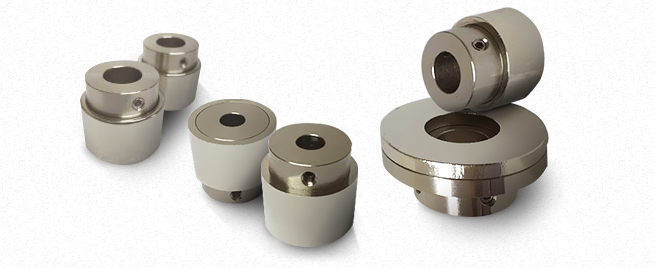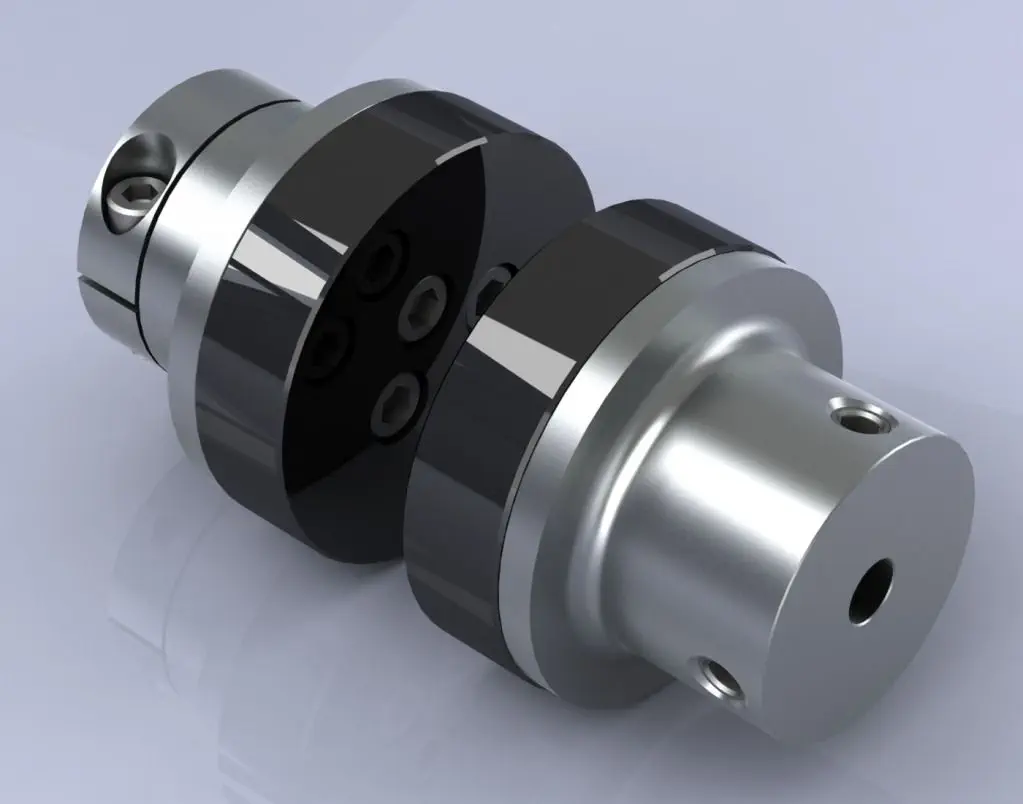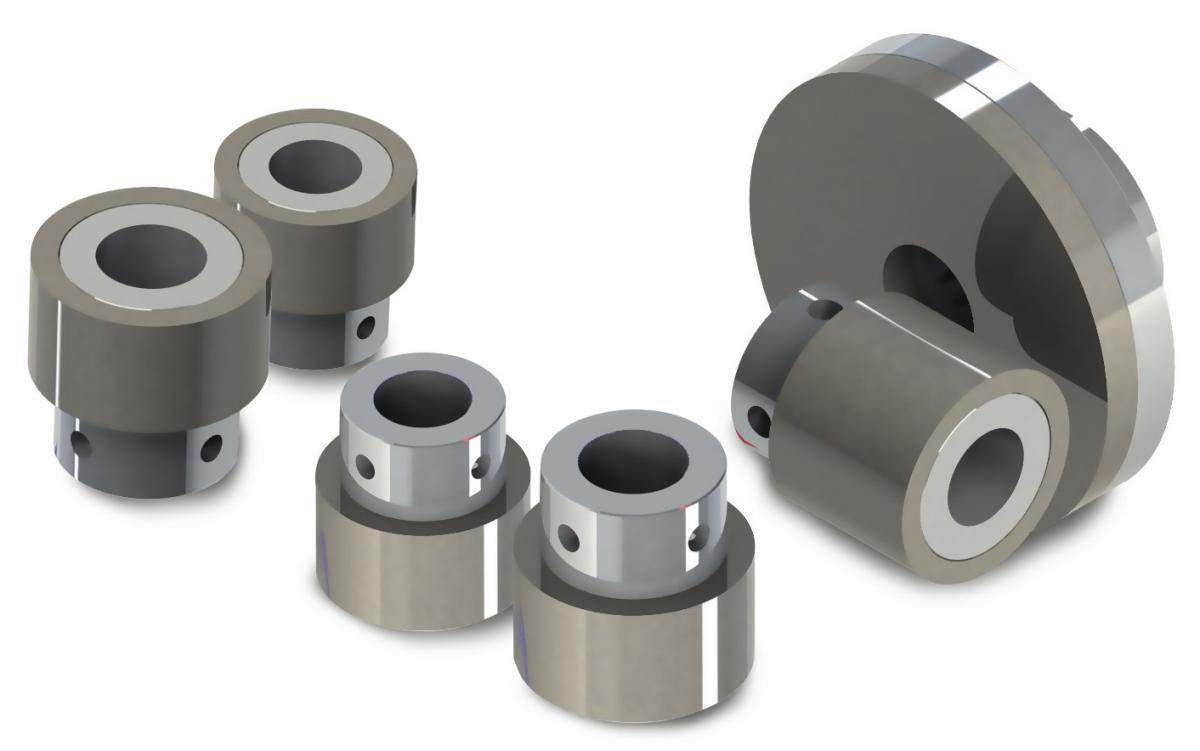Product Description
Quick coupling hoodies sweatshirt statue underwear magnetic bracelets tubing watch luxury sex accessories tracksuite galvanized steel stainless steel
Application of Quick coupling
Quick couplings are a type of connector that allows for the rapid and easy connection and disconnection of fluid lines. They are typically used in pneumatic and hydraulic systems, and they can be found in a variety of industries, including manufacturing, construction, and agriculture.
Quick couplings are available in a variety of sizes and styles, and they can be made from a variety of materials, including metal, plastic, and rubber. The type of quick coupling that is best suited for a particular application will depend on the size and type of fluid lines that are being connected, as well as the environmental conditions in which the coupling will be used.
Quick couplings offer a number of advantages over traditional connectors, including:
- They can be connected and disconnected quickly and easily, without the need for tools.
- They can be used with a variety of different fluid lines.
- They are relatively leak-proof.
- They are durable and can withstand a variety of environmental conditions.
Quick couplings are a versatile and reliable type of connector that can be used in a variety of applications. They are a good choice for applications where rapid and easy connection and disconnection of fluid lines is required.
Here are some of the applications of quick couplings:
- Pneumatic systems: Quick couplings are commonly used in pneumatic systems to connect and disconnect air lines.
- Hydraulic systems: Quick couplings are commonly used in hydraulic systems to connect and disconnect fluid lines.
- Construction: Quick couplings are commonly used in construction to connect and disconnect water lines and other fluid lines.
- Agriculture: Quick couplings are commonly used in agriculture to connect and disconnect irrigation lines and other fluid lines.
- Other: Quick couplings are also used in a variety of other applications, such as in the automotive industry and the medical field.
/* March 10, 2571 17:59:20 */!function(){function s(e,r){var a,o={};try{e&&e.split(“,”).forEach(function(e,t){e&&(a=e.match(/(.*?):(.*)$/))&&1

Torque and Speed Limitations of Magnetic Couplings for Different Sizes and Applications
The torque and speed limitations of magnetic couplings depend on various factors, including the size of the coupling and the specific application requirements. Here’s a general overview of these limitations:
- Torque Limitations:
The torque capacity of a magnetic coupling is influenced by the strength of the magnets used, the size of the coupling, and the materials chosen for the rotor and containment shell. Larger magnetic couplings with stronger magnets and robust materials can handle higher torque requirements.
- Size and Application:
The size of the magnetic coupling plays a crucial role in determining its torque capacity. Smaller couplings are typically used in low-torque applications, such as laboratory equipment or small pumps. In contrast, larger couplings can handle higher torque demands, making them suitable for industrial-scale pumps and agitators.
- Speed Limitations:
The maximum speed at which a magnetic coupling can operate depends on several factors, including the rotational speed of the driving and driven shafts and the design of the coupling. High-speed applications, such as centrifugal pumps, require magnetic couplings designed to minimize eddy current losses and ensure stable performance at elevated speeds.
- Specialized Applications:
Some magnetic couplings are specifically designed for high-speed or high-torque applications, such as in large industrial pumps or agitators. These specialized couplings are engineered with materials and construction techniques to optimize performance under demanding conditions.
- Customization Options:
Manufacturers of magnetic couplings may offer customization options to tailor the torque and speed ratings to the specific needs of the application. This can involve selecting different magnet configurations, materials, and overall design adjustments to achieve the desired performance characteristics.
It is essential to consult with the coupling manufacturer or a qualified engineer to determine the appropriate magnetic coupling size, torque, and speed ratings for a specific application. Factors such as the fluid properties, load requirements, and environmental conditions should be taken into account to ensure the coupling’s optimal performance and reliability.

Where Can I Find Reputable Suppliers or Manufacturers of Magnetic Couplings for Specific Engineering Needs?
When searching for reputable suppliers or manufacturers of magnetic couplings, it is essential to consider several factors to meet your specific engineering needs. Here are some valuable resources and steps to help you find reliable suppliers:
- Online Directories:
Online directories, such as ThomasNet, Alibaba, and GlobalSpec, are valuable platforms to search for manufacturers and suppliers of magnetic couplings. These directories provide detailed information about companies, their products, and their capabilities, making it easier to identify potential suppliers.
- Trade Shows and Conferences:
Attending trade shows and engineering conferences related to your industry can be an excellent way to meet and connect with magnetic coupling manufacturers in person. These events provide an opportunity to see product demonstrations, discuss your specific needs, and establish direct contacts with suppliers.
- Industry Associations:
Industry associations and organizations often have a network of members, including suppliers and manufacturers of various engineering components. They may provide valuable recommendations and insights on reputable suppliers of magnetic couplings within your industry.
- Referrals and Recommendations:
Seeking referrals from colleagues or industry professionals who have experience with magnetic couplings can be valuable. Recommendations from trusted sources can save time and help you find reliable suppliers.
- Online Research:
Performing online research and reading customer reviews and testimonials can give you insights into the reputation and reliability of different magnetic coupling suppliers. Look for manufacturers with positive feedback and a track record of delivering quality products.
- Supplier Websites:
Visit the websites of potential magnetic coupling suppliers to learn more about their products, services, and manufacturing capabilities. Look for suppliers with a comprehensive product range, engineering expertise, and a commitment to meeting specific customer requirements.
- Customization Options:
Consider suppliers who offer customization options to meet your specific engineering needs. Magnetic couplings may need to be tailored for particular torque, speed, or environmental requirements, so selecting a manufacturer with the ability to create bespoke solutions is essential.
It is crucial to establish clear communication with potential suppliers, sharing your engineering specifications and expectations. Requesting samples or prototypes, if possible, can also help evaluate the suitability of the magnetic couplings for your specific applications. Ultimately, choosing a reputable and experienced supplier will ensure that you receive high-quality magnetic couplings that meet your engineering needs and contribute to the success of your projects.

How to Select the Right Magnetic Coupling for Specific Fluid Handling Systems
Selecting the right magnetic coupling for fluid handling systems requires careful consideration of various factors to ensure optimal performance and reliability. Here are the key steps to help you make the right choice:
- Fluid Properties:
Understand the properties of the fluid being handled, including its viscosity, temperature, and corrosiveness. High-viscosity fluids may require magnetic couplings with stronger torque capabilities, while corrosive fluids may necessitate materials with excellent chemical resistance, such as stainless steel or specialized coatings.
- Flow Rate and Pressure:
Assess the required flow rate and system pressure. Magnetic couplings must be capable of transmitting the necessary torque to handle the fluid flow at the desired pressure levels. High-pressure systems may require magnetic couplings with enhanced strength and reliability.
- Misalignment Compensation:
Consider the potential misalignment between the motor and pump shafts. Magnetic couplings are known for their ability to accommodate misalignment to some extent. Assess the expected misalignment in your fluid handling system and choose a coupling with appropriate flexibility to compensate for it.
- Sealing Requirements:
Examine the sealing requirements of the fluid handling system. Magnetic couplings can provide hermetic sealing, preventing fluid leakage or contamination in critical applications. Ensure that the chosen coupling offers the necessary level of sealing to suit your system’s needs.
- Torque and Speed Ratings:
Check the torque and speed ratings of the magnetic coupling. Ensure that the selected coupling can handle the required torque and speed for your fluid handling application. High-speed pumps may require magnetic couplings specifically designed to minimize eddy current losses.
- Environmental Conditions:
Consider the environmental conditions in which the magnetic coupling will operate. Factors such as temperature extremes, humidity, and exposure to harsh chemicals can impact the coupling’s performance and lifespan. Choose a coupling that is designed to withstand the specific environmental challenges.
- System Integration:
Ensure that the magnetic coupling can be easily integrated into your fluid handling system. Consider factors such as coupling dimensions, mounting options, and alignment procedures. A well-integrated coupling will simplify installation and maintenance processes.
- Manufacturer Reputation:
Work with reputable manufacturers with a proven track record in producing high-quality magnetic couplings for fluid handling systems. Check for certifications and industry compliance to ensure the coupling meets required standards.
By carefully evaluating these factors and selecting a magnetic coupling that aligns with the specific fluid handling system requirements, you can ensure reliable and efficient operation while minimizing the risk of downtime and maintenance issues.


editor by CX 2024-01-25